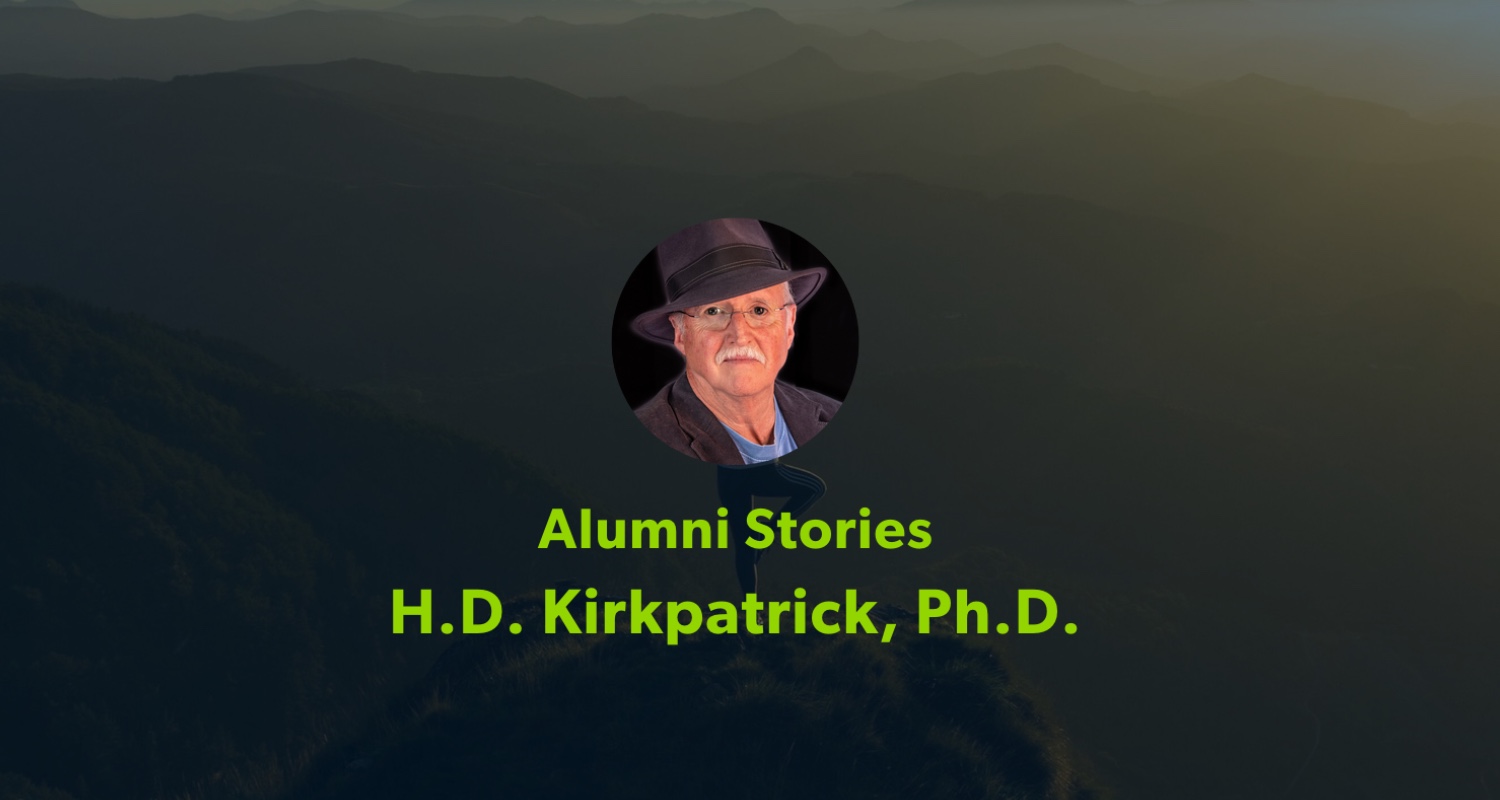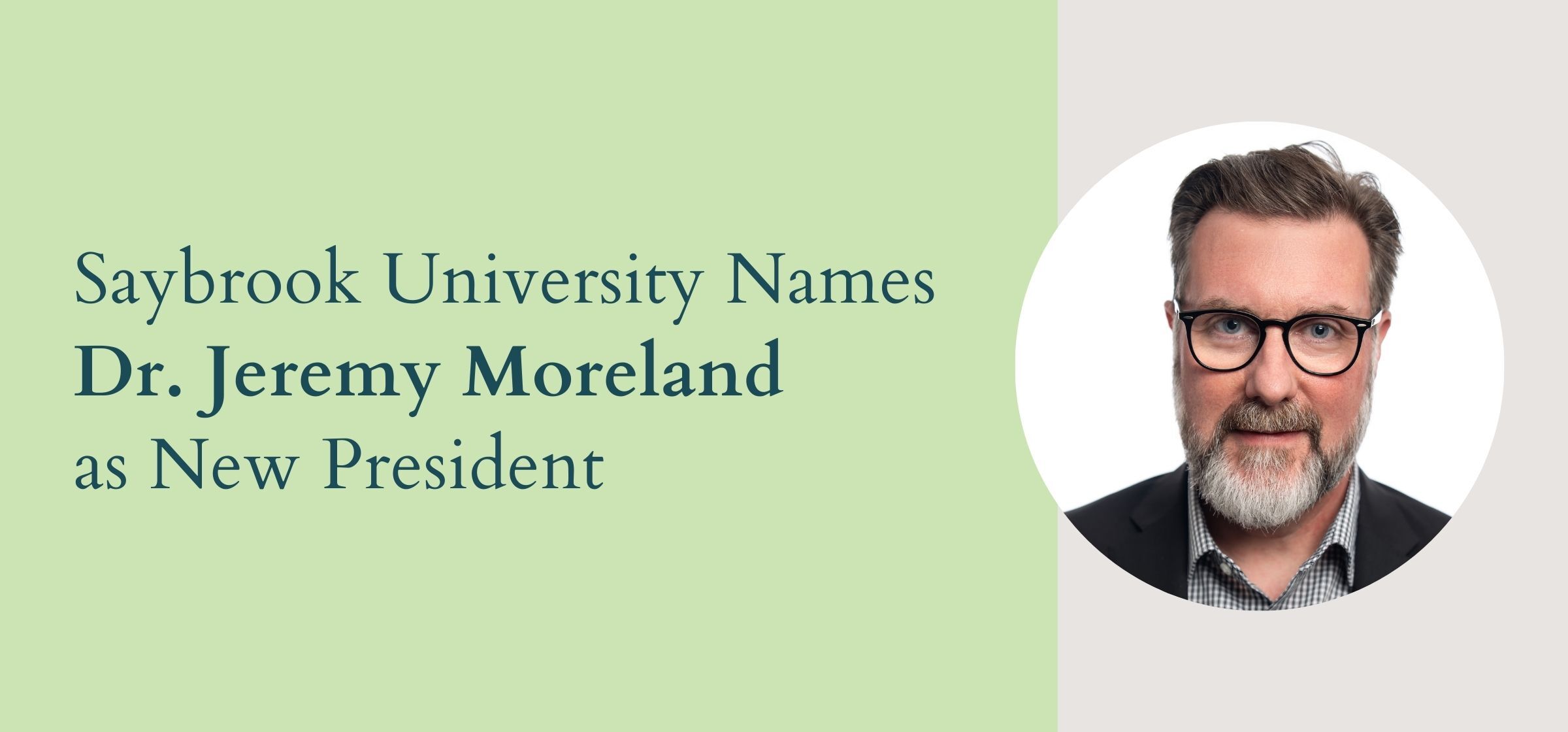Tabitha Moore, Ph.D., student in transformative social change, has spent years gaining experience across fields to aid her activism in changing systems for the better.
Tabitha Moore, a current Ph.D. student in the transformative social change program at Saybrook University, is a woman who wears many hats. Just a few of her roles are mother of three, social justice activist, business owner, educator, head judge for the state of Vermont, and dog mom of three.
That may seem like a full schedule for many people, but Moore’s passion for social justice keeps her constantly seeking more ways to help others and share her knowledge. She regularly advocates for identity-based equity issues through both her social justice activism and private business, as well as her work in education and support for community initiatives.
“My drive has always come from wanting to better understand how our systems affect the development of individual and community identities, as well as how people treat each other,” Moore explains.
In 2019, her drive led her to enroll at Saybrook. Later that year, she began her Ph.D. studies in the transformative social change department. “I started way too big with my dissertation, like most Ph.D. students do,” she recalls with a laugh. “But the focus I’ve found is on what happens when we use inclusive, relationally focused, and anti-racist ideals to create a racially responsive policing procedure.”
Most of Moore’s work has an intersectional focus on identity through a race-first lens, which she applies to multiple fields through her consulting firm and activist work. As she explains, “I use connections to help people understand these issues so that they can make informed, anti-racist, pro-human choices.” Her curious spirit reflects a diverse background of personal and professional experiences in multiple fields.
Building a legacy
Following years of schooling in which Moore completed her undergraduate studies and later earned a master’s degree in marriage and family therapy, she delayed immediately applying for a Ph.D. program as initially planned. She wanted to ensure that she chose the right program: a holistic program that would allow her to integrate all her interest areas rather than limit them.
Instead, she decided to carve her own path at her own pace until she could find the Ph.D. program that was right for her, taking professional roles in multiple environments to broaden her knowledge of systems. In addition to her time as a marriage and family therapist, she also worked as a probation officer and a school counselor, as well as becoming the first woman of color to take the position of administrator in the history of the Onondaga County Probation Department in New York.
Moore regularly works with law enforcement, an interest stemming from her own negative experiences with law enforcement officers growing up as a biracial Black child in Vermont. As an adult, she returned to Vermont to help create more diverse systems from the inside out. There, she formed the Rutland area branch of the NAACP—the second largest branch in New England. She is currently a member of the Vermont State Police’s Fair and Impartial Policing Committee and the Vermont Criminal Justice Council’s Fair and Impartial Police Training Committee. She also serves as chairperson of the Rutland Area NAACP’s Criminal Justice Committee.
Her experience inspired her to open a private consulting business specializing in justice, equity, diversity, and inclusion for organizations, educational institutions, and community partners with a desire to advance equity initiatives through services and operations. Her clients span multiple fields, including many from law enforcement, giving Moore an ideal perspective on how to help them implement change. “My work in law enforcement has always been an intentional way to gain a better understanding of the way it truly operates,” she says. “It’s been a huge benefit to my practice as a consultant because it has provided me with a more empathetic perspective.”
Making connections
In her ongoing journey to increase understanding and connections across racially biased systems, Moore often finds herself in a mediator role, distinctively poised to reach across racial and cultural lines. “I was educated in all-white systems and steeped in white supremacy all the time,” Moore explains. “I developed a unique way of navigating that environment so I could survive and sustain myself. I often say it takes people in all kinds of positions to change systems and alleviate suffering. And this is a position that seems to suit me well.”
According to Moore, the key to working with people of differing perspectives and experiences is to begin from a place of general agreement. “If you can find the point at which everyone can relate, it makes it much easier to work from there to find solutions to divisive issues,” she says.
The most crucial systemic changes Moore encourages through her work involve a great deal of perspective-shifting and reflection for everyone. “We need to reflect on and adjust the sense of individualism held by many people in this country to incorporate a community-oriented mindset so we can improve the way we approach each other regarding our differences,” she explains. “And many more of us need to develop a willingness to be guided by others—especially those with the least amount of structural or systemic power—with the recognition that equity doesn’t take away anyone else’s rights or value, nor does it assume that those with less power are going to replicate the injustices perpetrated within current and historical systems.”
In addition to her work with law enforcement and consulting, Moore has continued to work in education and child welfare. She held positions as a trainer for the Child Welfare Partnership and trustee for Planned Parenthood of Northern New England until 2019. Currently, she teaches three classes on equity for educators at a K-12 school district through Southern New Hampshire University.
Finding a balance
Moore found Saybrook University after 17 years of searching for the right Ph.D. program and a tumultuous series of events that resulted in her decision to make major changes to her way of life. “Like so many who do activist work, there have been times when I’ve been extremely consumed by it,” she says. “We feel the weight of our ancestors and, as a result, tend to put so much of ourselves into our work that we have difficulty turning it off.”
The lines between her work and home life became increasingly blurred as white supremacists targeted and harassed her family, vandalizing their Black Lives Matter (BLM) sign. Her children were clearly affected by the hateful rhetoric being directed their way, expressing fear of people finding out who they were. “The tipping point was when my eldest decided to try and get the BLM flag raised at her high school after attending a protest with me, resulting in her becoming a target of hate in our community,” Moore says. “She was being stalked by adults on social media, trying to turn others against her.”
The fear reached a fever pitch one night when Moore was away and received a call from her daughter. “She was terrified that someone had broken into our home, saying things like, ‘what if someone is coming to attack me because I raised the BLM flag?’” Moore says. “I had to call the police, and even though it was a false alarm, it really woke me up.”
Additionally, Moore’s other two children expressed feelings of worry about how thinly she was stretching herself and sadness that she spent so much time away from home. “I was working a full-time job as well as coaching cheerleading and doing additional work with the NAACP, and I overlooked my family’s needs in ways that were not okay with them or me,” she says. “I needed to recommit to myself and to my role as a mother.” Subsequently, Moore began reducing her heavy workload, leaving some positions including the board of Planned Parenthood. She stepped down from her Rutland NAACP presidency in 2021.
It was during this time that Moore’s long search for a Ph.D. program finally ended when she found Saybrook University. “Saybrook has been amazing. It was exactly what I needed at the right time,” she says. “I came across the transformative social change program and thought, ‘this is it. This is how I can converge my advocacy and desire to create positive connections between people with all my knowledge about systems.’”
This year, Moore was gifted a handmade birthday card from her 11-year-old daughter expressing “eight reasons we love you.” The first reason on the list reads, “because you make time for us.”
“That’s the first time my kids have said that to me in years,” Moore says. “For me, that’s my biggest win as an activist. I’m finding a much better balance between doing this work and being a mom. Now I tell all my activist friends, the most radical thing you can do is love yourself and find joy and happiness.”
Find Out More
Recent Posts






























